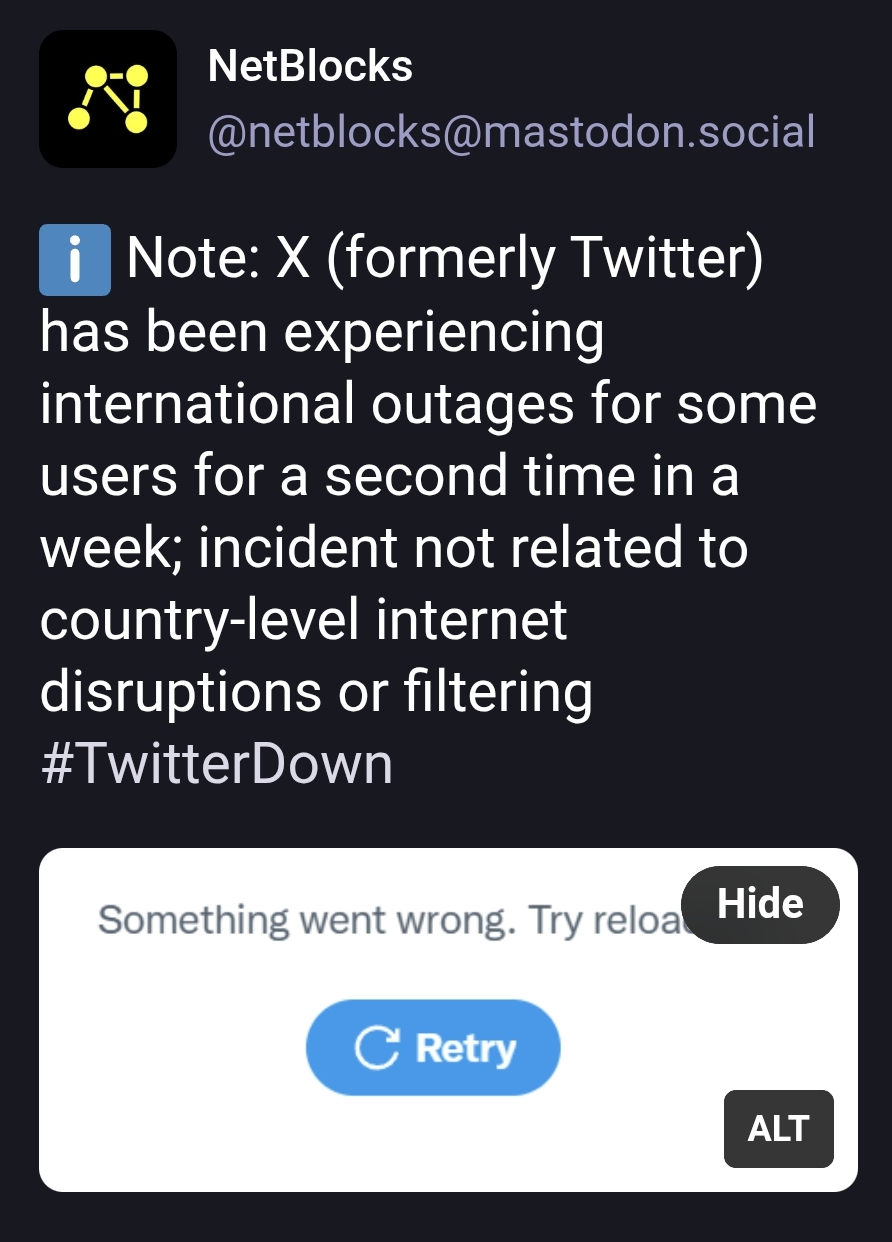Technology
154 readers
94 users here now
Share interesting Technology news and links.
Rules:
- No paywalled sites at all.
- News articles has to be recent, not older than 2 weeks (14 days).
- No videos.
- Post only direct links.
To encourage more original sources and keep this space commercial free as much as I could, the following websites are Blacklisted:
- NBC.
- CNBC.
- NY Magazine.
- Substack.
- Tom's Hardware.
- ZDNet.
- TechSpot.
- Ars Technica.
- The Verge.
- Engadget.
- TechCrunch.
- Gizmodo.
Encouraged:
- Archive links in the body of the post.
- Linking to the direct source, instead of linking to an article talking about the source.
founded 1 month ago
MODERATORS
151
152
-1
Is it OK to leave device chargers plugged in all the time? An expert explains
(theconversation.com)
153
154
155
5
The Meta Oversight Board in the Trump Era: A Subtle Shift with Far-Reaching Consequences?
(verfassungsblog.de)
156
157
158
159
160
161
162
163
164
165
166
167
168
16
Twitter hit with $8.2 million verdict following eviction from Boulder HQ after Musk takeover
(www.courthousenews.com)
169
170
16
World's first full-size humanoid robot fighting championship to debut in Shenzhen
(www.globaltimes.cn)
171
172
174
175
